Explore the dynamic world of Open Educational Resources and discover how OER Africa is driving the movement forward. This page is divided into two sections:
Articles: Our articles aim to deliver insights on OER-related themes that inform, spark conversation, and engage with the developing open education landscape, with a particular focus on Africa.
Updates: Below, the articles, you'll find updates on OER Africa’s latest initiatives, activities, and contributions to the OER community.
Articles
This section features targeted articles crafted specifically for educators, students, and the global Open Educational Resources (OER) community. The articles examine themes related to OER, offering insightful perspectives and information. The content seeks to inform, prompt discussion, and actively engage with the dynamic landscape of open education, particularly within the African context.
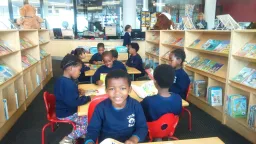
This week (14-20 March 2022) is South African Library Week. In 2001, the Library and Information Association of South Africa (LIASA) established Library Week for all types of libraries in South Africa to market their services and create awareness of the important role that libraries play in a democracy.
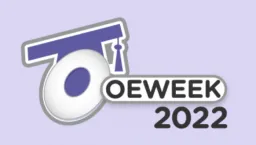
Every year, the team at OER Africa looks forward to Open Education Week (OE Week). This year is no different, as we prepare ourselves to engage with this vibrant community and participate in the many diverse activities on offer. Launched in 2012 by Open Education Global, OE Week is a collaborative, community-built open forum. It raises awareness about open education and highlights innovative open education successes worldwide.
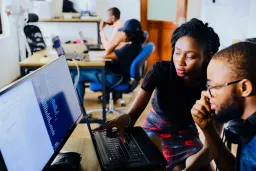
Assessment always has a purpose. We need to be clear on that purpose in our learning design work. But that purpose can vary. In this article aimed at educators, we explore assessment of, for, and as learning to think about the purpose of assessment and to help us think about integrated summative assessment.
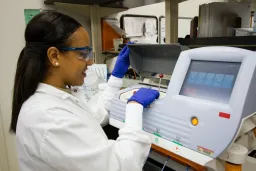
You may have seen ArXiv pop up in your science-related or open access repository searches. ArXiv is an open access repository for pre-prints and post-prints that have been moderated but not peer reviewed.

Are academics at your institution struggling to find the time and space to invest in their own continuing professional development (CPD)? With so many competing priorities, many academics find it difficult squeeze CPD in among their other daily responsibilities.
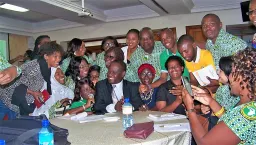
In this week’s article, Leanne Rencken delves into the ongoing collaboration between the African Library and Information Associations and Institutions (AfLIA) and OER Africa. OER Africa has developed three learning pathways, as part of its grant from the William and Flora Hewlett Foundation, and, along with AfLIA, is piloting them with university and academic librarians on the continent.
Updates
This section provides updates on OER Africa’s initiatives and activities. Stay informed about our contributions to the OER community and how we are driving the open education movement forward.

Open Praxis has partnered with the Open Education Consortium for the publication of selected papers among those presented in the 2018 Open Education Global Conference.

The latest JL4D features three articles on OER Research in Africa, including "Learning for Development in the Context of South Africa

Saide's OER Africa consultant, Brenda Mallinson, will be running a session together with Shadrack Mbogela from the Open University of Tanzania on "Exploring the Digital Fluency course for Academic staff Professional Development" at the e/merge Online Festival.

Discover ten key facts about open educational resources (OERs) in an easy to digest format. Each fact is supplemented with links to worldwide resources extending and deepening the core idea.

Exploring Aspects of Digital Fluency for Blended Teaching and Learning. Workshop presentation by Brenda Mallinson to The First Annual Teaching and Learning Conference 2018 at North West University, South Africa. The workshop was on the digital fluency course developed together with the Open University of Tanzania.

London School of Economics Press has launched the latest in a succession of new university press initiatives and one that will support the development of high-quality, academic-led, open access publications in the social sciences. Kieran Booluck provides details of the first LSE Press journal and outlines plans for the press to pursue more innovative publications and experiment with new types of content.
